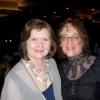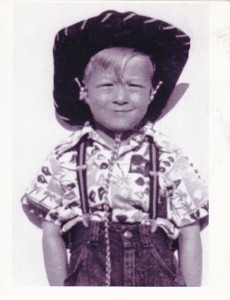You’ve spent months, maybe years on a manuscript. Finally it’s finished and you’re ready to look for your dream agent. How do you wade through the bewildering maze of literary agents out there to find the one who is your perfect match? For twenty years, I’ve worked with wonderful agents in both the general and inspirational markets. Here are a few FAQ’s to help you as you go about finding just the right match.

Dorothy and her dream agent Natasha Kern
How do I find a reputable agent? Is the agent you’re considering a member of the Association of Artists Representatives (AAR)? This professional organization for agents handling literary and dramatic works sets standards for membership and requires their member agents to abide by a code of ethics. The organization maintains a database of members available to authors seeking representation. Their official website provides a list of questions to ask of potential agents. Find it here: www.aaronline.org
Among the questions listed on this site, pay particular attention to these: How long has the agent been in business? How many clients does he/she have? How many verifiable sales has this agent made within the past year?
An agent has expressed an interest in my book but requests a reading fee up front. Should I pay it? Because the potential for abuse is so great in this situation, the AAR prohibits its member agents from charging reading fees. Generally speaking you should look for an agent who does not charge such fees. A reputable agent does not get paid until he or she sells your work and collects the advance from the publisher.
What is an Author-Agent Agreement? Most agents require a written agreement that sets out the terms of representation. The agreement should indicate whether the agent intends to represent all your future work, or whether he or she will determine this on a book by book basis. The agreement should specify a time frame for selling the work and should include the terms and requirements for terminating the agreement. Sometimes, despite the best efforts of both agent and author, the relationship just doesn’t work. It’s important for both you and the agent to understand how to sever the partnership in a professional manner.
Aside from these important legal considerations, you should consider the personal side of the partnership. It’s ideal if you can sit down with an interested agent and talk face to face. If that isn’t possible, schedule time for a telephone chat. A few questions to ask :
What form of communication do you prefer, and how often can I expect to have contact with you? This very important question can forestall misunderstandings on down the road. Most good agents are very busy and don’t have time to give clients a day by day report. Since agents don’t get paid until a sale is made, they are happy to call clients the minute an offer comes in. Because editors are busy, too, this can take weeks. Understand, too, that the initial offer is just that–a beginning point. Your agent will then look over a short document from the publisher called a deal points memo which sets out the basics of the offer. Many times these points are negotiated and changed. Your agent will keep you informed as the deal moves forward but don’t expect a daily report.
Some agents prefer to be contacted by email, others prefer the telephone. Try to accommodate their preferences.
What level of involvement with the creative process should I expect? Some agents are very hands on, and read their clients’ manuscripts before they are submitted. Others offer guidance and encouragement but expect clients to write and submit the contracted work with a minimum of direction. In my view, an author should write the book, the agent should sell it. Authors who need a detailed critique before submission should consider hiring a free-lance editor.
Do our personalities “click”? This is completely subjective but it’s very important to the success of a long- term relationship and it’s why a face to face meeting before you sign the agency agreement is so desirable.
Finding an agent with whom you can build a long-term, mutually advantageous partnership requires time and effort. But the rewards of finding that dream agent can last throughout your career. New authors: Do you have other questions about finding an agent? Agented authors: what questions would you add to this list? Agents: Describe your dream client.
